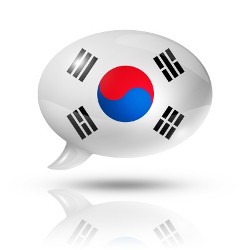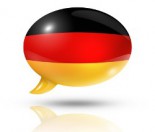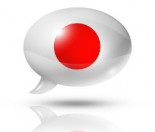The best way to understand the Korean culture and way of life is to know their language. Korean is spoken by millions of people around the world.
Why learn Korean?
Korea is a significant export market for New Zealand and major trading partner. By 2020 Korea is likely to have the world’s seventh largest economy.
Korea is one of NZ’s fastest growing tourism markets and a major source of full-fee paying students in NZ tertiary institutions.
The fact that the Republic of Korea is a member of the Organisation for Economic Cooperation and Development (OECD) and of the United Nations Security Council highlights Korea’s strengthening position internationally.
To understand and possess the ability to communicate in Korean will allow you to better appreciate the beauty of the Korean culture. There are many reasons to learn Korean apart from plans to travel to Korea. Learning a new language like Korean is a character-building exercise enhancing one’s understanding and acceptance of cultural differences and connecting oneself to the globally networked world.
Where do you learn Korean?
You will find a variety of options available for your child to learn Korean. This may be by mixing with Korean-speaking friends or family, or it may involve enrolling in lessons. Some ways to do this are listed below:
- Private language schools
- Universities or polytechnics for older children
- Local Community Centres, where you and your child could choose to learn together
- Home Schooling
- Language Exchange Programmes
- e-Learning courses
What age can your child start learning Korean?
A child’s ability to grasp new and multiple languages at an early age is well documented. Pre-school children from ages as young as 3 or 4 can start learning Korean simply by being exposed to the language at home, or in structured play activities (such as those run by Fun Languages).
However, age is no barrier when it comes to learning a foreign language and it would be a great opportunity for you to learn alongside your child.
How do you progress over time?
The rate of progression will be determined by the child’s age, the amount of exposure to the language, and the amount of time they spend practising. The more opportunities your child gets to practice what they learn in everyday situations, the greater will become their level of proficiency.
Generally it is recommended that older students spend at least 1 year focused on learning the fundamentals of Korean and then on an ongoing basis continue to maintain the language ability by attending classes or practicing with other Korean speakers.
What equipment do you need to learn Korean?
The equipment you choose will depend on the age of your child; some suggestions include:
- Korean-English dictionary (electronic or hard copy)
- Reference books including grammar and vocabulary books
- Audio CDs in the car
- Video tapes or DVDs to watch
- CD-ROMs with the aid of computers
You will also need to expose your child to Korean speakers whenever possible.
How much does it cost to learn Korean?
Cost ranges from free (learning from friends or learning from various free websites) to several thousand dollars (for full immersion at an overseas language school).
For regular children’s lessons you could expect to pay anywhere between $12 to $20 per session, depending on the age of the child and the size of the group.
How much time does it take to learn Korean?
Class times vary but generally most courses meet once or twice a week.
Classes generally run for 1 to 1.5 hours, depending on the age of the child.
Older children would be expected to spend at least another hour outside of class to revise and complete their homework. It would be ideal if a student could spend at least 5 hours per week outside of class to practice, but this is often unrealistic.
Great Korean Websites
A site that introduces the Korean language including the alphabet and vocabulary
An independent online Korean learning resource site.







I LIKE TO LEARN KKOREA